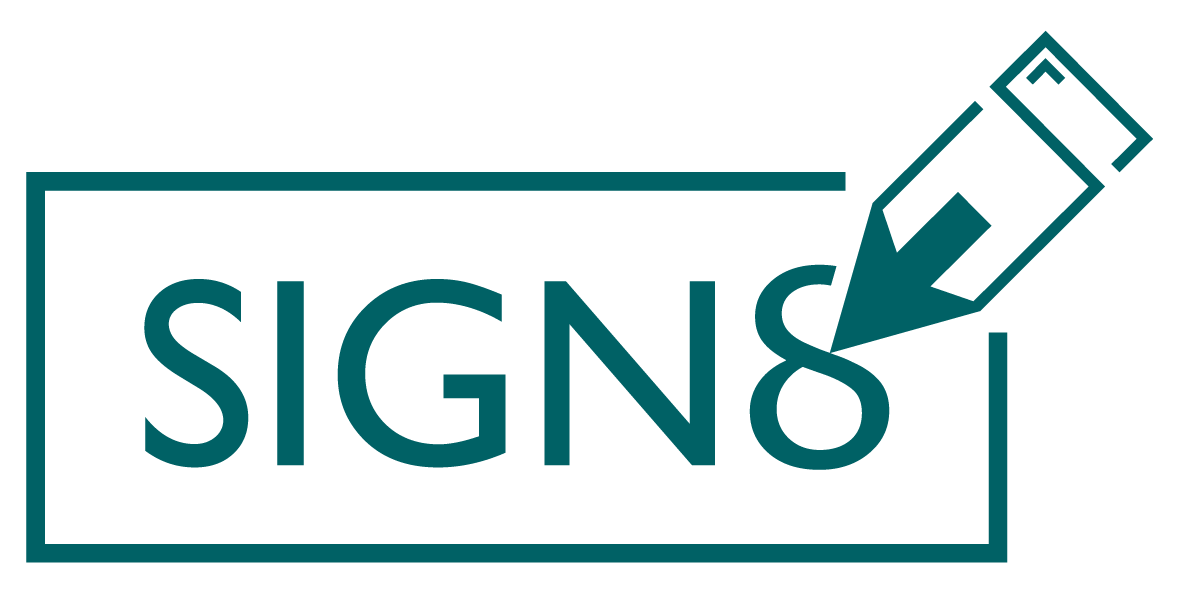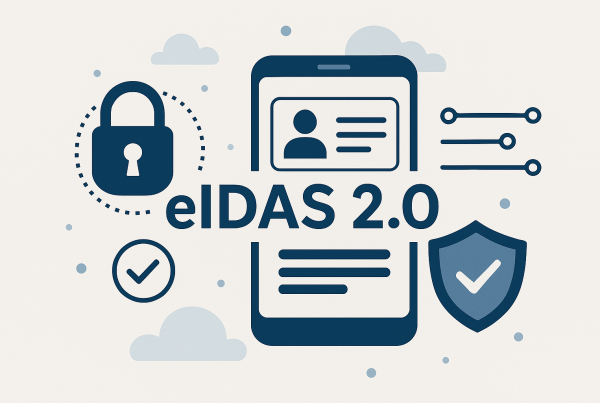Many signatures are needed, especially in HR and personnel. In order to not only speed up the process, but also to optimize it, digital signatures can be used for this purpose. Legally binding signatures are also indispensable for this area and must also comply with legal standards.
The following example, based on a recent case law of the Berlin Labor Court, clearly illustrates how important it is to provide transparent information about the type of different digital signatures and their correct use for the respective legally prescribed form requirement. In addition to the Advanced Signature (FES), SIGN8 will soon also offer a Qualified Signature (QES). In order to sign via FES, a so-called two-factor authentication is required, which ensures the identity of the signer. QES places an even higher requirement on the identification of the signer by authenticating the identity through Video-Ident including a comparison with an identification document. In order to comply with the legally prescribed form requirement, fixed-term employment contracts, for example, must be signed with a QES.
In a ruling dated September 28, 2021, the Berlin Labor Court confirmed the formal requirement of a qualified signature for the limitation of employment contracts. The fixed-term nature of employment contracts requires the According to §14 Para.4 TzBfG must be in writing in order to be effective. According to §126a BGB, electronic form can replace the statutory written form, whereby the document must be provided with a qualified electronic signature for this purpose. The requirements for this form of signature are derived from Art.29 of the eIDAS Regulation. In the present case, the parties have entered into an employment relationship and limited it to November 30, 2020. Such fixed terms are not permitted without a material reason pursuant to §14 (1). TzBfG is only permissible up to a total duration of two years and a maximum number of three fixed terms. In the facts of the case, the employment contract decided on September 29, 2020 was to remain in effect until the factual reason ceased to exist; this time limit was confirmed by an advanced electronic signature.

An employment contract may initially be concluded without observing any formal requirements, but the legally prescribed written form pursuant to Section 126 of the German Civil Code (BGB) is required for a fixed term. This can, as already explained above, be done by electronic form according to §126a para. 1 BGB can be replaced. For this purpose, the issuer must add a name to the declaration and provide it with a qualified electronic signature. This formal requirement was not complied with in the present case. The employment contract becomes effective apart from the formal requirement, but not the fixed term. Consequently, an unlimited employment contract was concluded, which clearly contradicted the will of the contracting parties.
SIGN8 will soon offer you a qualified signature certified by the German Federal Network Agency which fulfills the written form requirement according to §126a BGB. The tool currently already offers you the option of simple and advanced signature, with which you can sign permanent employment contracts and many other contracts in both the employment and personnel law context.
SIGN8 offers you transparency and a high level of user-friendliness for your digital legally compliant signature!



